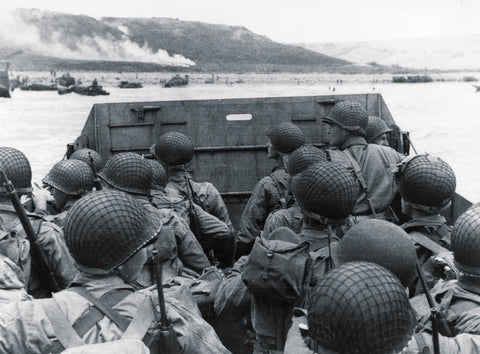
How Were D-Day Beaches Named?
Q: I am in my 80s and have read numerous books on World War II—but in all my
years I have never seen who came up with the names of the five beaches on
D-Day. Can you help?
—Robert Palmer, Pass Christian, Mississippi
A: The code names for the Normandy landing beaches are well known, but their exact origins are murky at best. In theory, World War II code names were randomly assigned from existing code books and were frequently changed due to concerns over security or appearance. Hence the three British/Canadian beaches were originally designated after species of fish: Gold, Jelly, and Sword. However, according to legend, no less a personage than Winston Churchill himself objected to the term “Jelly Beach”—he considered it too frivolous for the site where Canadian forces would kill and die, and suggested Juno in its place. (Churchill also objected to early code names for the entire invasion: “Roundup,” “Sledgehammer,” and the melded term “Roundhammer.” Churchill insisted on the more magisterial sounding “Overlord.”) Lesser known is “Band Beach,” proposed in a swampy area east of Sword. Considered for a possible landing, it was eventually deemed unnecessary and unsuitable. Presumably the term came from the bandfish species.
The origin of the American beach names is also uncertain. One anecdote, recorded by British historian Peter Caddick-Adams, recounts that two American soldiers were assigned to perform carpentry work at the headquarters of U.S. general Omar Bradley in London as the invasion plans were being developed. Chatting with the soldiers, Bradley discovered one was from Omaha, Nebraska, and the other from Provo, Utah. Soon, “Omaha” and “Utah” beaches appeared on Bradley’s planning maps to replace the code names “X-Ray” and “Yoke.” Caddick-Adams calls this an “intriguing addendum to history, but impossible to verify.”
Regardless of the origins, the names Utah, Omaha, Gold, Juno, and Sword have made the transition from top-secret terms to common geographic usage in ways no other code names ever have.
